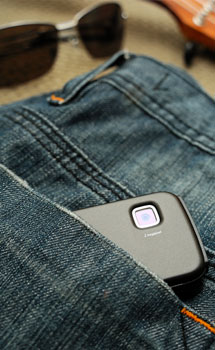A Parent’s Guide to Understanding Stealing Behaviours
As children move into the pre-teen and teenage years, the reasons why they might engage in stealing become broader and more complex.
- Many teens shoplift in the presence of friends out of a desire to impress others, as oftentimes the teens that engage in the riskiest behaviors are the most popular with peers.
- Some teens use stealing as a way to assert their independence from the world of adult authority. Teenagers may steal out of a sense of boredom and a desire to seek excitement.
- They may feel that stealing, along with other negative behaviors, is the only way to get attention from parents, or they may steal as a way to exact revenge on someone believed to have harmed them or treated them unfairly.
- Lastly, teens may simply steal for practical reasons, such as the desire to have a particular item that they want, but cannot afford.

You may suspect shoplifting if you notice the following:
- If your child wears jewelry or clothing he or she did not purchase and did not receive as a gift, you should ask where the items came from. Follow up on the response.
- Some kids swap clothes and other items. However, if your child repeatedly claims to be borrowing items from a friend, contact the other parent(s) to see if they know about the swapping. Many times, electronic devices, including MP3 players, games or cell phones are the booty of shoplifting
- Packaging and price tags should tip off parents to potential shoplifting. Ask your child where the packaging came from.
- Peer pressure often leads to shoplifting episodes. Pay attention to your child’s friends and their habits. You might be surprised by what you find.
If you believe that your child is shoplifting, question him in a non-threatening manner. Always let your child know that you are disappointed in the action and not in him. Educating your child at a young age that stealing is not appropriate can help reduce the chances of shoplifting. Open communication, especially about legal consequences, is important.
Child and adolescent psychiatrists recommend that when parents find out their child has stolen, they:
- tell the child that stealing is wrong
- help the youngster to pay for or return the stolen object
- make sure that the child does not benefit from the theft in any way
- avoid lecturing, predicting future bad behavior, or saying that they now consider the child to be a thief or a bad person
- make clear that this behavior is totally unacceptable within the family tradition and the community

Recent Comments